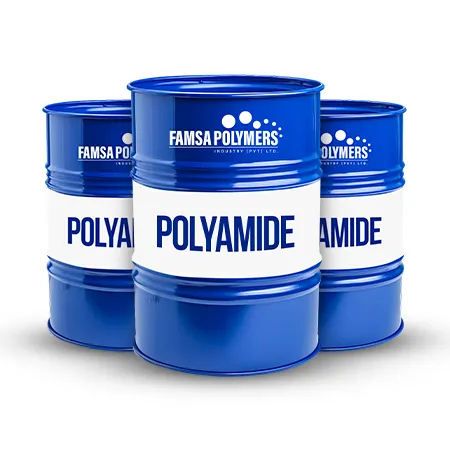
| Grade | TAV (mgKOH/g) | Viscosity @25℃ | Characteristics/Uses |
| FAMDUR-140 | 370-410 | 12,000-18,000 | Polyamide Epoxy Curing Agent |
| FAMDUR-115 | 230 – 270 | 50,000-70,000 | High Viscosity Polyamide Epoxy Curing Agent |
| FAMDUR-125 | 350-370 | 2,500-4,500 | Medium Viscosity Polyamide Epoxy Curing Agent |
| FAMDUR-365 | 360-380 | 200-500 | Polyamide curing agent low viscosity suitable for adhesives, coating concrete crack injection |
Don’t miss our future updates! Get Subscribed Today!
© 2025 Famsa Ploymers Industry Pvt Ltd. All Rights Reserved. | Web Designed By artxpro